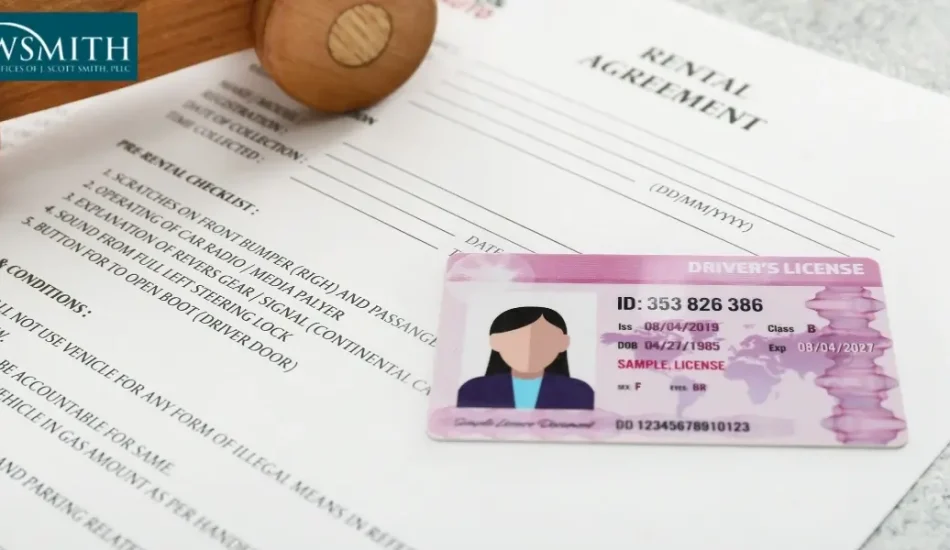What Does It Cost to Restore Your Driver’s License?

For many people in North Carolina, losing their driver’s license is a serious setback. Unfortunately, getting your driver’s license back isn’t as simple as paying a single fee. If you’re dealing with a suspension, you are likely asking, “What does it cost to restore your driver’s license?” It can be expensive, but ignoring the issue can have serious consequences for your life. That is why it’s important to understand the fees, fines, and steps involved so you can get back on the road.
The Costs Involved in Restoring Your Driver’s License in North Carolina
In North Carolina, the cost of restoring your driver’s license depends on many different factors, including the reason for the suspension, the length of the suspension, and any outstanding fines. While there isn’t a flat fee for every situation, some of the most common costs involved in restoring your driver’s license include:
Reinstatement Fees
If your license was suspended because of a violation or unpaid traffic tickets, you’ll have to pay a reinstatement fee to get your license back. These fees are typically based on the nature of your offense.
DWI-Related Costs
With over 27,000 DWI convictions in 2023, DWI arrests are a common cause of license suspension in North Carolina, and they come with a unique set of costs. In addition to a reinstatement fee, you may also need to pay for:
- Substance abuse assessment and treatment. This is a court-ordered alcohol or drug assessment that’s often required for those arrested for a DWI. It must be paid for by the offender.
- Ignition interlock device (IID). In some cases, the court might require you to install an ignition interlock device in your car before you can regain full driving privileges. The cost to install and maintain this device comes out of your pocket.
- Alcohol education classes. If the court orders alcohol education classes, you may need to pay fees for these programs.
Court Fees and Costs
In some cases, you may need to appear in court as part of the restoration process, especially if your license was suspended because of more serious violations. Court fees vary by county, depending on the specifics of your case.
Fines and Penalties
Outstanding fines for speeding tickets, parking violations, or other traffic-related offenses may need to be paid before your license can be reinstated. These fines can add up quickly, especially if you have accumulated multiple violations.
Insurance Costs
Once your license is reinstated, you may also see an increase in your auto insurance premiums. Insurance companies often raise rates for drivers with a history of violations, especially DWI convictions. This increase can be substantial, and you might pay significantly more for car insurance after your license is restored.
Though it can be expensive, understanding the costs and taking the right legal steps can help you move forward and regain your driving privileges as efficiently as possible.
Driver’s License Suspension: The Real Cost
Losing your driver’s license can throw your entire life into chaos.
As a state, North Carolina already battles a 3.7% unemployment rate. For many North Carolina residents, a suspended license can mean job loss. This is because public transportation might not be a viable alternative for most people, especially those living in rural areas.
If you rely on a vehicle to get to work, you need to immediately start the process of restoring your license. Many employers may be unwilling to accommodate a worker who struggles to show up on time because of inconsistent transportation.
A suspended license also impacts personal responsibilities. Parents who need to drive their children to school, medical appointments, or extracurricular activities could face immense stress. Depending on others for rides is unreliable and can strain relationships.
With 21.9% of North Carolinians suffering from depression, the stress of losing the freedom to drive can also take a toll on mental health. The feeling of isolation, dependence, and financial strain can contribute to anxiety and depression. Even something as simple as grocery shopping or attending medical appointments becomes a logistical challenge, adding to an already difficult situation.
Restoring your license isn’t just about reclaiming your ability to drive; it’s about restoring your independence, stability, and mental peace.
FAQs
What Happens If I Move to Another State While My North Carolina License Is Suspended?
Most states check the National Driver Register before issuing a new license. If North Carolina has flagged your suspension, the new state will likely deny your application until the issue is resolved. Additionally, penalties for driving on a suspended license can follow you, which means you may face consequences in your new state as well.
Can I Be Denied a Job Because of a Suspended License?
Yes, you can be denied a job because of a suspended license. Many employers, even those not involved in transportation, conduct background checks that include driving records. Employers that require travel, deliveries, or even occasional work-related driving may reject applicants without valid licenses. Some companies also view a suspension as a sign of irresponsibility, making it harder to secure employment in competitive fields.
Does a Driver’s License Suspension Affect My Car Insurance, Even If I’m Not Driving?
Yes. Many insurance companies consider a suspension to be high-risk behavior, which can lead to increased premiums, even if your car sits unused. In some cases, your insurer may cancel your policy altogether. If that happens, securing new coverage can be difficult and expensive, with some companies requiring proof of reinstatement before issuing a policy.
Regain Your Driving Privileges Today
Restoring your driver’s license in North Carolina can be a complicated and costly process. However, with the right guidance and legal representation, you can overcome the challenges. At LAWSMITH, The Law Offices of J. Scott Smith, PLLC, we can help individuals throughout North Carolina restore their licenses so they can move forward with their lives.

